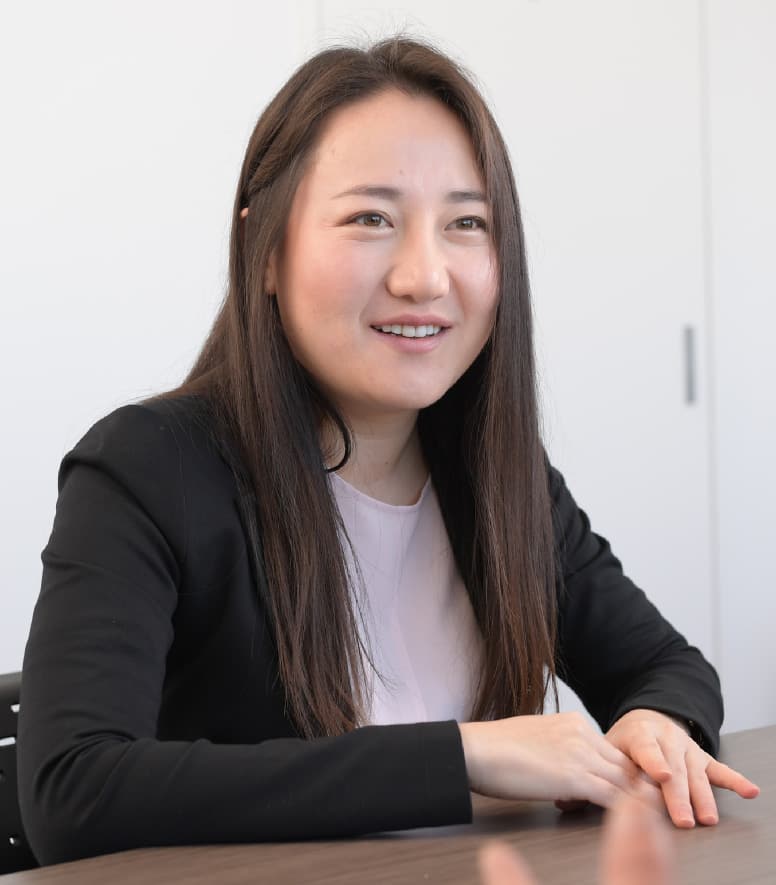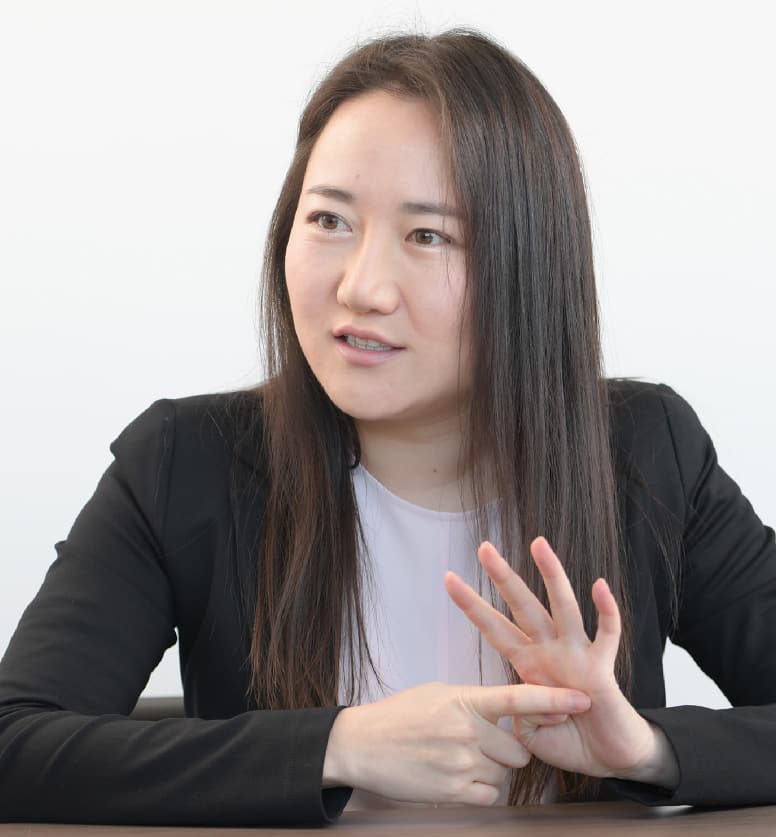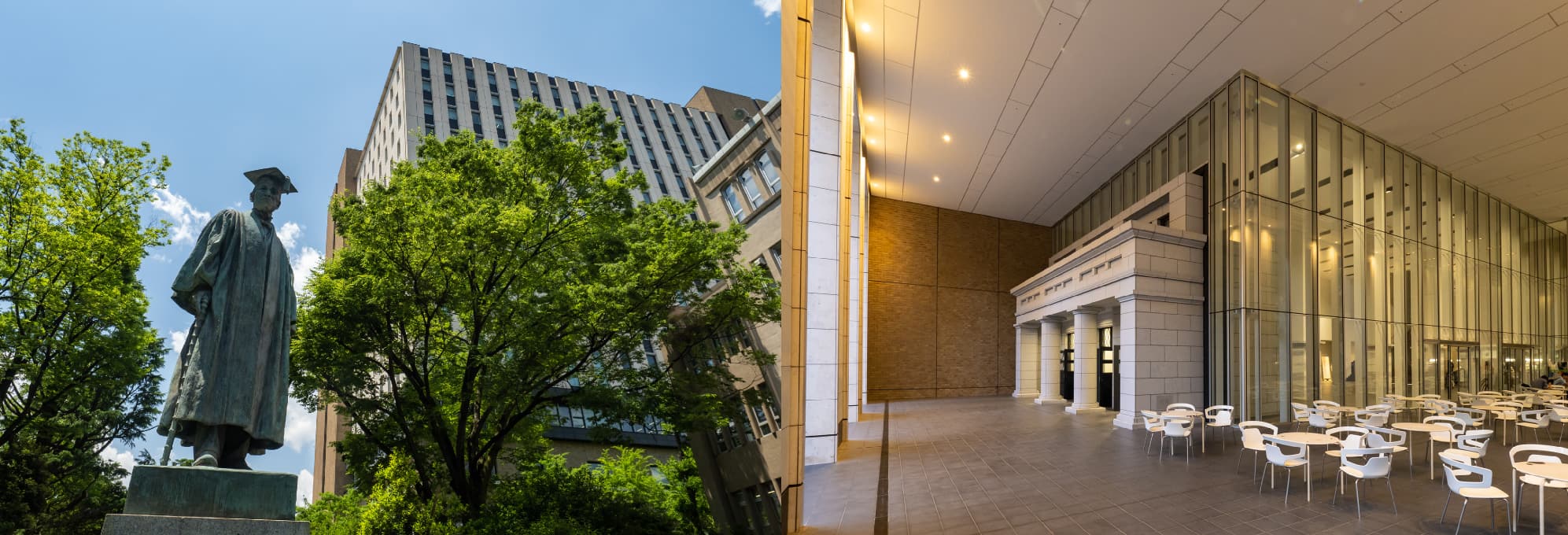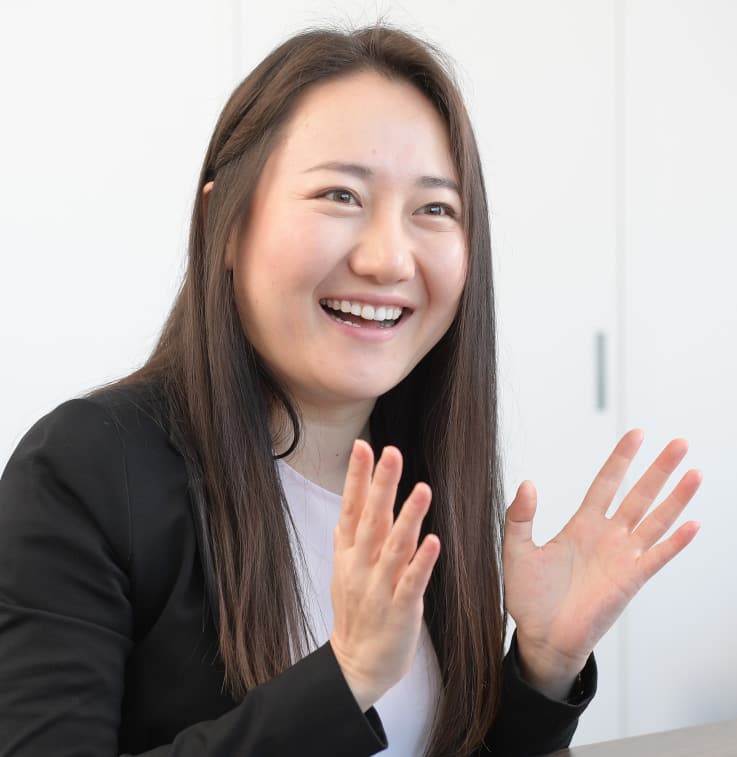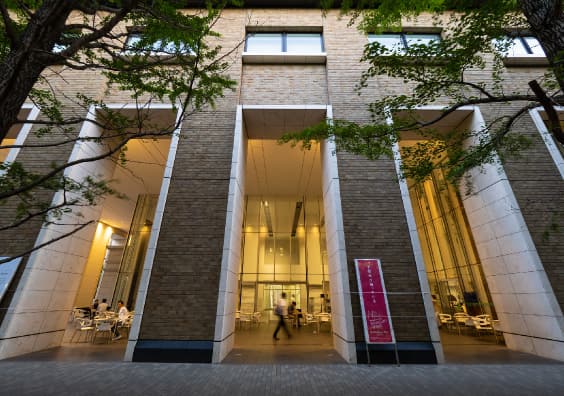A MONGOLIAN GIRL’S ENTREPRENEURIAL DREAM
Mandalgovi is the capital of Mongolia’s Dundgovi Province, located at the edge of the Gobi Desert. Although it is the provincial capital, the population of the sleepy town is only slightly over 10,000. Baska grew up in a harsh natural environment defined by a piercing blue sky and an endless expanse of bleak terrain.
“There are no tall buildings even in the central parts of the town. We're surrounded by steppes stretching as far as the eye can see,” Baska said. “I spent the first 18 years of my life in this typical Mongolian backwater town. Can I ride a horse? Yes, of course.”
But the girl growing up in the out-of-the-way place had a big dream, a vision of her future as a globe-trotting entrepreneur.
“Looking back, I think I was strongly influenced by my parents,” she recalled. “My father was a Mongolian language teacher and my mother was a Russian language teacher who later switched to English. They both had progressive views and kept telling me to become an economist to play an active role in the society. They also told me to look beyond our borders to the outside world. As a natural result of their advice, I began to think about studying at a university abroad as soon as I graduated from high school.”
Baska chose to study at the American University in Bulgaria (AUBG). “AUBG allows you to earn a U.S. bachelor’s degree and a Bulgarian bachelor’s degree with a European diploma supplement at the same time, and it also offers double major and minor options. The university was perfect for my academic plans. I intended to study economics according to my parents’ advice, but I also wanted to study business administration and accounting in order to start up a business in the future. In addition, studying in Bulgaria was much less costly than studying in the U.S.”
It was her first time living on foreign soil, and alone to boot. But Baska had no anxiety about life in Bulgaria. She studied with students from many other countries. On holidays, she would travel to Istanbul in neighboring Turkey by night bus to meet her elder brother, who was studying in the country. The four years at AUBG passed in the blink of an eye.
After graduating from university with two majors as planned, Baska returned home and got a job at a global accounting and auditing firm with a branch office in Mongolia.
“Knowledge about accounting, finance and business strategy is vital for starting up a company,” she said. “I was determined to earn an MBA for that purpose but decided that it would be beneficial to gain some practical work experience first.”
A LEARNING COMMUNITY OF STUDENTS
WITH DIVERSE BACKGROUNDS
After spending three and a half years doing financial audit of various commercial banks and financial institutions and gaining in-depth knowledge of accounting, Baska was determined to earn her MBA degree. However, she was unsure about where she should go to do it.
“Initially, Japan was not my first choice. Japanese business schools were not as famous as prestigious institutions in the U.S. or Europe. But I thought Asia would be the main market for the business I would launch in Mongolia later in my life. To learn about Asian business culture and develop business contacts throughout the region, I thought it would be best for me to earn an MBA in Japan. So I carefully studied various business schools in Japan and decided to attend WBS.”
She enrolled in an International MBA program that starts in September. Since all classes were taught in English, the program suited Baska, who could not speak Japanese at the time. When she told her parents about her plan to study in Japan, they smiled and said, “Go for it.” Although her savings were not enough to cover the school fees, she fortunately won a highly competitive scholarship provided by Japan’s education ministry.
“My classmates were all from other countries. In addition to students from such Asian nations and regions as Taiwan, Thailand and China, there were also students from Spain, Mexico and the U.S. I found a learning community of students with diverse backgrounds and identities.”
Baska found the classes intriguing, exciting and stimulating. She was particularly drawn to discussion-oriented classes based on the case study method.
“Participants expressed all kinds of opinions about each case. I was always inspired by other students’ unexpected viewpoints that were radically different from mine. In these classes, I learned the importance of strategically analyzing business issues that have no one correct answer, and of always being open to new ideas and perspectives.”
She took a seminar on business strategy and general management by Professor Koji Aiba for two years. In the seminar, students took turns serving as moderator for open-ended group discussions. She was greatly encouraged by the way Professor Aiba took great care to include all his students in the discussions and activities.
“Professor Aiba is a very caring and dedicated teacher who has vast experience in his field. He has a lot of heart and invests a lot of time to make sure that his students succeed in the program. He invited us to his home during the New Year holidays and we made rice cakes together. I always enjoyed these moments of bonding and experiencing Japanese cultural traditions together.”
TOTAL AND CAREFUL SUPPORT FOR FOREIGN STUDENTS
Foreign students without sufficient Japanese language skills face various challenges in their life in Japan. One is the intimidating sea of kanji Chinese characters they see everywhere in Japan.
“The names of products sold in supermarkets and restaurant menus are all written in kanji. At first, I had a hard time trying to figure out the meaning of the words. But you get used to it eventually. Some of the toughest challenges for foreign students in Japan are finding places to live and applying for visas and extensions. A wonderful aspect of WBS is its effective and well-designed system to support foreign students deal with such types of issues they face in Japan.”
She received especially useful support from the school’s career management center, which she says is a very reliable resource for foreign students pursuing professional careers in Japan.
“The career management center made it possible for me to take part in Nomura Holdings’ internship program, which led to my job at the company. Japan has a unique system and culture for students’ job-hunting activities, which can be difficult for foreign students to understand and cope with at first. In order to help foreign students find jobs in Japan, the career management center organizes various orientation events and information sessions. It also provides a wide range of other support services such as proofreading CVs and practicing mock interviews in Japanese. I also received guidance when applying for a visa extension which was necessary to continue job-hunting activities upon graduation.”
WBS offers a learning environment that allows foreign students with diverse backgrounds to develop their abilities through healthy competition and exchange. Its high-quality classes are designed to provide practical knowledge that is immediately useful for their career paths. It also offers passionate instructors and helpful support tailored to the needs of individual students. Baska believes she made the right choice when she decided to enroll in WBS to earn an MBA in Japan.
UNLIMITED OPTIONS FOR THE FUTURE
Currently, Baska works for Nomura Holdings’ CFO division. Nomura is a global financial services group based in Asia, servicing its clients through its four main business divisions of retail, asset management, wholesale and merchant banking, working closely together across borders to provide financial products and services in over 30 countries around the world.
“I took a job at Nomura Holdings because during my internship I found the company, among other things, to be more international than I’d initially expected. Even compared to the global accounting firm where I used to work, Nomura is far more open and very rich in diversity. Currently, I am in charge of a project to improve the efficiency of the operations in our division as its project manager while carrying out other finance tasks. Every day, I’m busy with challenging new tasks and responsibilities. The knowledge and strategic thinking skills I gained at WBS have been crucial to succeeding in my current role.”
Baska has been working boldly but steadily to develop her career with the ultimate goal of starting up her own business. What kind of vision does she now have for her future?
“I still have a lot to learn from my current job. My short-term goal is to get involved in bigger projects to gain more practical management and implementation experience. I still have the long-term goal of starting up my own business. I haven’t committed to a single location, timeframe or type of venture yet. As market conditions evolve and I, myself, mature as a person, I believe the future holds many exciting new opportunities. Building upon the skills and knowledge I gained at WBS, I will continue exploring my potentials and carve out a fulfilling future for myself.”
